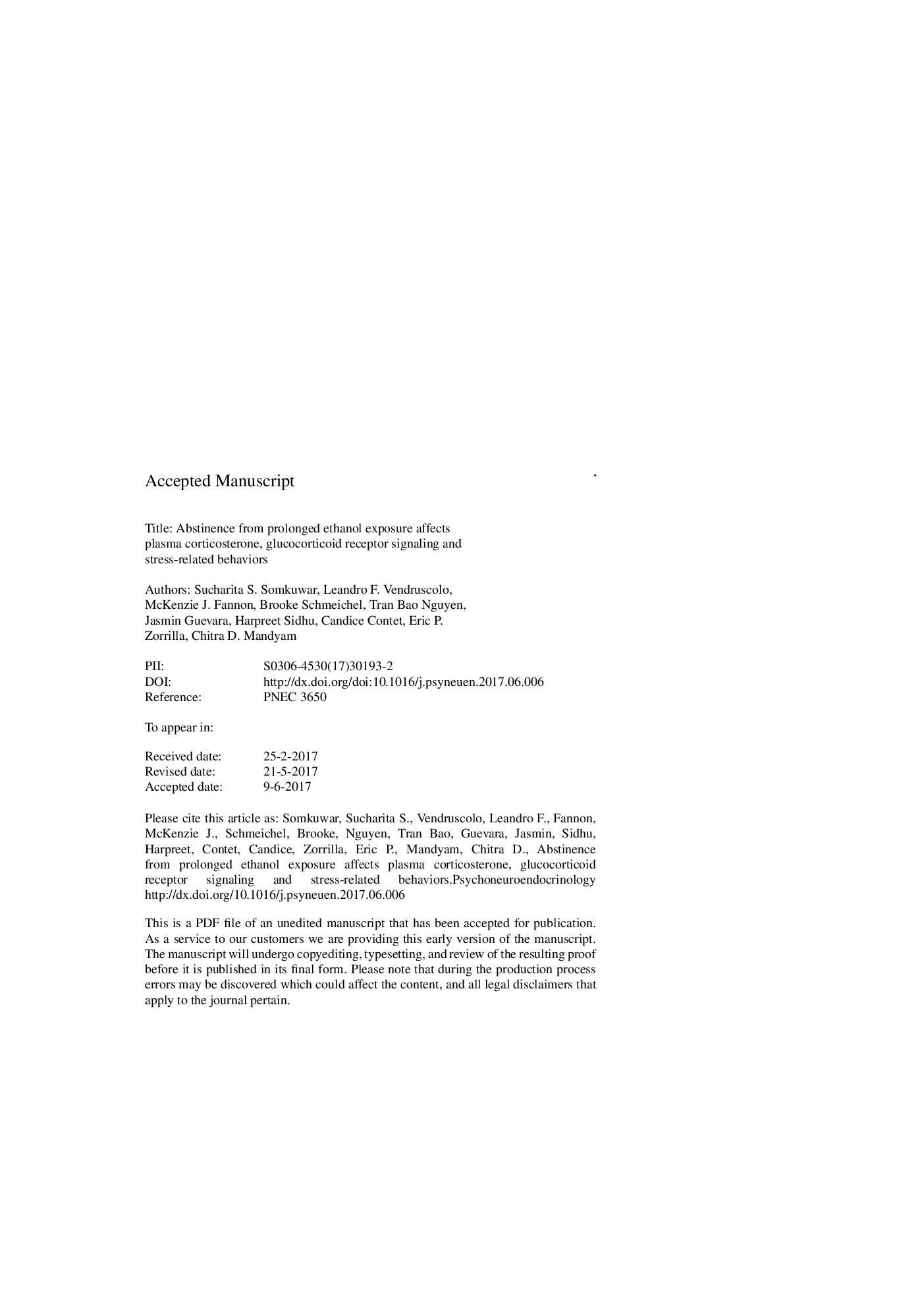ترجمه فارسی عنوان مقاله
استعمال از قرار گرفتن در معرض اتانول طولانی مدت، کورتیکواسترون پلاسما، سیگنالینگ گیرنده گلوکوکورتیکوئیدی و رفتارهای مرتبط با استرس را تحت تاثیر قرار می دهد
عنوان انگلیسی
Abstinence from prolonged ethanol exposure affects plasma corticosterone, glucocorticoid receptor signaling and stress-related behaviors
| کد مقاله | سال انتشار | تعداد صفحات مقاله انگلیسی |
|---|---|---|
| 155215 | 2017 | 60 صفحه PDF |
منبع

Publisher : Elsevier - Science Direct (الزویر - ساینس دایرکت)
Journal : Psychoneuroendocrinology, Volume 84, October 2017, Pages 17-31
ترجمه کلمات کلیدی
کورتیکواسترون، گیرنده گلوکوکورتیکوئید، پرخاشگری اضطراب، استعفای، قشر پیشروی مغزی متوسط،
کلمات کلیدی انگلیسی
Corticosterone; Glucocorticoid receptor; Aggression; Anxiety; Abstinence; Medial prefrontal cortex;

